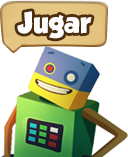
The industrial revolution began when the steam engine was invented and opened the door to everything starting from trains to vehicles to automated factories. At that time, people witnessed an enormous change in their lives and the products they had access to. This change was the result of innovative ways to transport goods and people.
Programming is creating its own revolution right now. Imagine how many jobs have been automated thanks to programming. This field has changed everything about how businesses are run today.
It stands to reason, then, that coding is today’s equivalent to what reading was several decades ago. back then, you couldn't learn about world news or important events without taking the time to read books, newspapers, letters, and other documents that conveyed information. In many ways, this form of communication is now replaced by computers and the Internet. We still consume much of our information today through reading, but that written information is now delivered via machines instead of on paper. True literacy involves knowing how to program computers, not just how use them. The big data era requires the knowledge to actually acquire the data.
In today’s digital age, children are encouraged to learn the basics of programming. It’s a well-known fact that children can pick up foreign languages very quickly, especially if they begin learning as early as six or seven years old. An understanding of how to differentiate between reality and fiction can start at the age of four. Young children have a great thirst for new knowledge and can learn easily, so this age is a great time for them to learn a skill like programming.
Planning for a young child’s future means introducing them to different skills like critical thinking as early as possible. An introduction to critical thinking can be accomplished by adding constraints to the problems that test the students so that a correct solution becomes more than just reaching the target. Instead, a correct solution must take environmental constraints and other limiting factors into consideration. This type of problem solving is a core component of a programming education.
Another skill that programming enforces is problem solving. A child should approach a problem by modelling a solution. If their solution isn’t correct the first time, the child can always use hints to guide them towards an alternative solution that may be more correct.
Overall, kids need to improve in the areas of creativity, innovation, critical thinking, problem solving, and decision making to become competitive in the technology-heavy world we live in. The job market of the future is in the process of being born, and programming is a big part of it. The earlier your kids start their coding activities, the better the chance that they will be able to join today’s programming revolution.
Start your kids off on the right track now. Try RoboGarden and watch important skills like critical thinking and problem solving grow in your kids.
